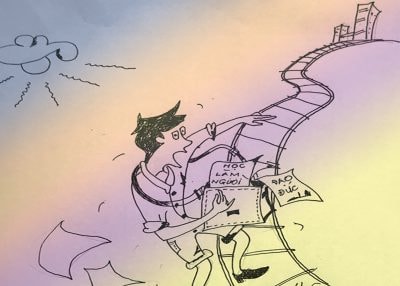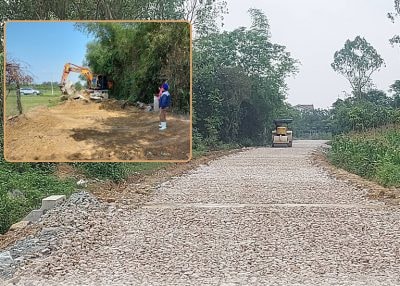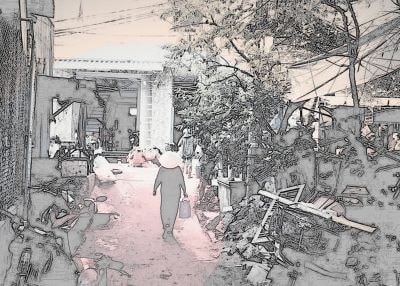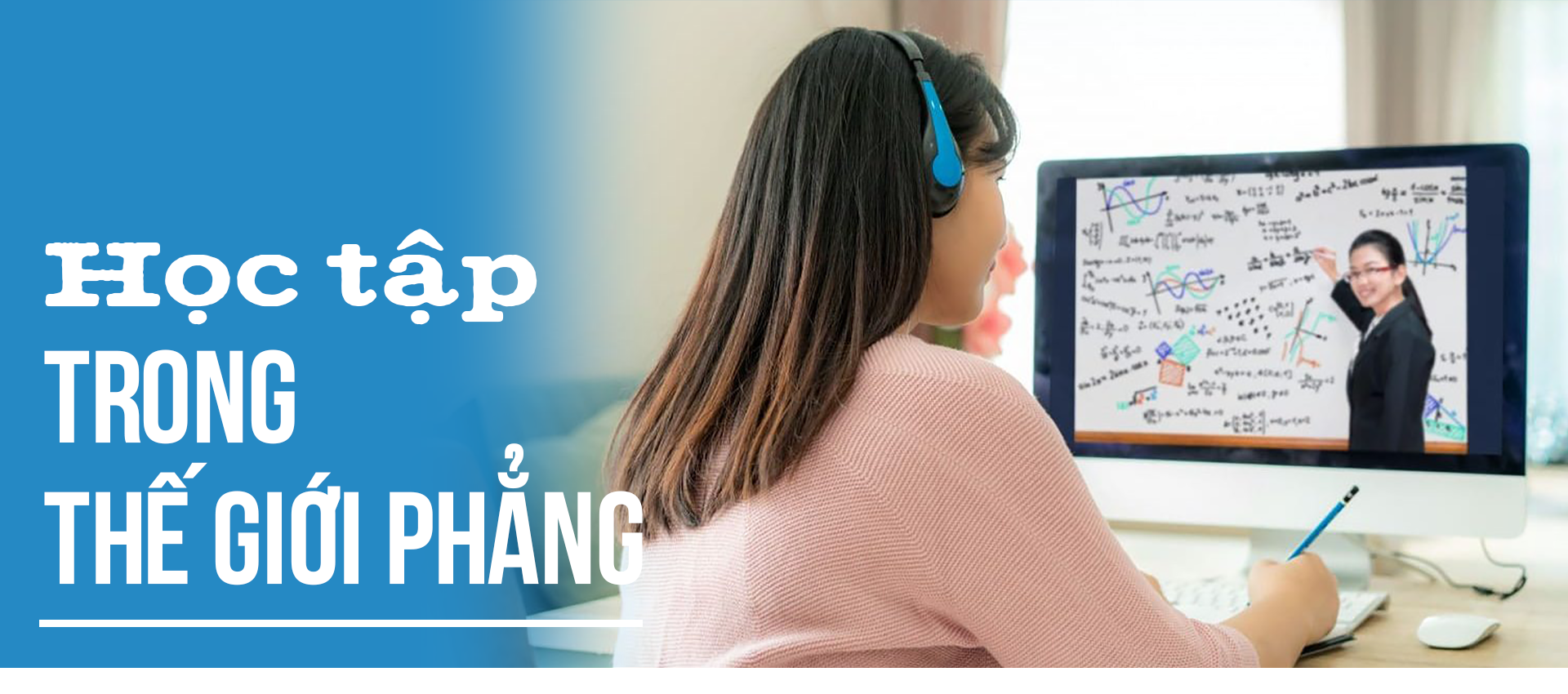
A few months ago, in a discussion at a forum for young scientists and university lecturers, there was an opinion that: As educational data becomes more and more popular, and artificial intelligence applications become more and more widespread, access to knowledge, especially elite knowledge, becomes easier. For example, a medical student who is good at foreign languages can go online to listen to lectures by Nobel Prize-winning scholars in Medicine instead of listening to lectures from his teachers at school. Even students who are not good at foreign languages can access lectures by the most prestigious scholars in the world.
Many people ask: What will traditional teaching and learning be like? Traditional teaching and learning is a direct interaction between teachers and students. There, it is not only the transmission of knowledge, but also many other complex social relationships, from responsibility, affection to reward, discipline, emotional assessment... between the people involved. Therefore, when online teaching and learning becomes popular, people are worried that this change will make those social relationships disappear, especially the feelings and emotions of teachers and students.
But in reality, human emotions are interacted in many different forms, interaction in school is just one type. Learners do not lack respect for their teachers because of online learning. Teachers will not reduce their love and care for their students because of not interacting directly. They just have to find other ways to express it. Social reality is always created in different ways of interaction. The more education develops, the more it will create a psychological state in which emotions still have a certain place. But all creations, especially cultural and emotional ones, need time to take shape. Concerns about emotional interactions between students and teachers in online education and the educational transformation process need attention. But I believe that it will be balanced when everything enters a stable phase.
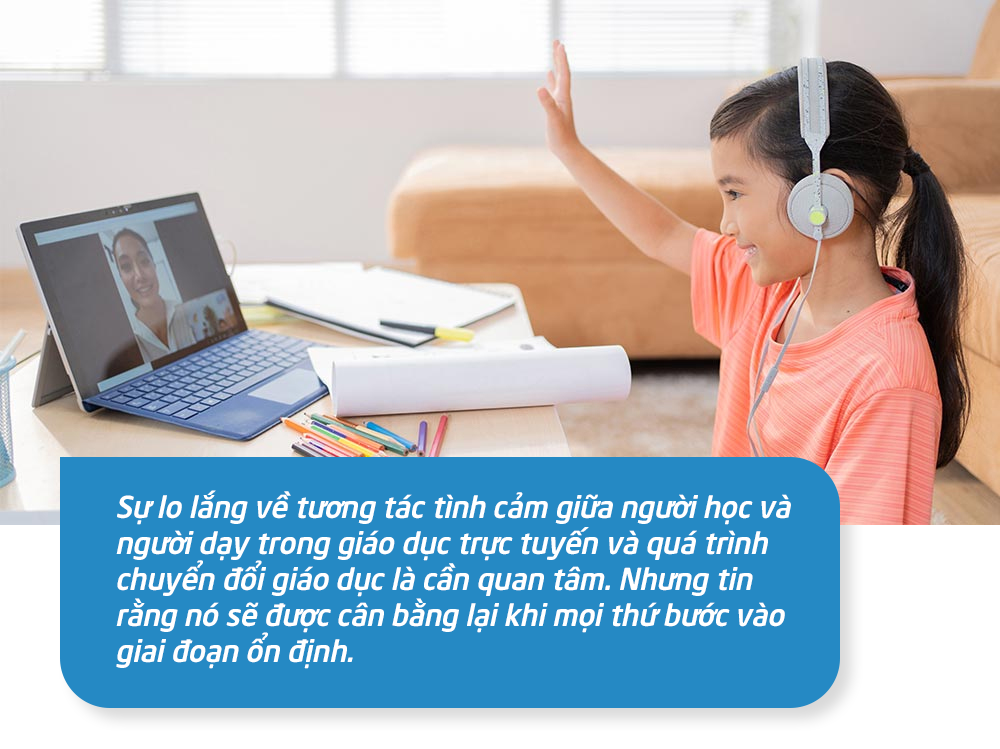
Along with the concern about interaction and emotions is the concern about changes in learning skills. Transforming education towards digitalization or transforming teaching and learning towards online requires the learners’ self-learning capacity and skills to be improved. This becomes a huge challenge, especially for secondary schools. When switching to online learning, without self-learning capacity, students will not be able to keep up with the program.
The new general education program compiled by the Ministry of Education and Training emphasizes improving students' self-study ability. That is correct. But looking back, centuries ago, Vietnamese people considered self-study an important issue in education. Successful people mostly relied on self-study. Self-study needs to start from the love of discovery, exploration and gradually forming skills to access knowledge. Self-study also needs to be nurtured and molded in the spirit of freedom, the mind to discover new things, not focusing on achievements and chasing soulless indicators. Learning is a process of discovering new things around you. And self-study comes from that passion for discovery. Once teachers arouse that passion and guide students on the right path to seek knowledge, students will certainly always be active and learn.
Nowadays, data has become a flat world, even flat in language when supported more and more strongly by artificial intelligence. Data sources from basic to advanced are transmitted on the internet. A person who wants to explore a problem can approach it in many different ways. What is necessary is that we must have a passion for learning and have the skills to find these information channels. That is self-study. And teachers need to help learners improve their self-study ability so that they can access knowledge, not just impart knowledge like before. A person who knows how to self-study is a proactive person and does not let himself be stopped, because in modern life, standing still means falling behind, stopping means losing. Therefore, self-study will become an important key in the transformation of education.
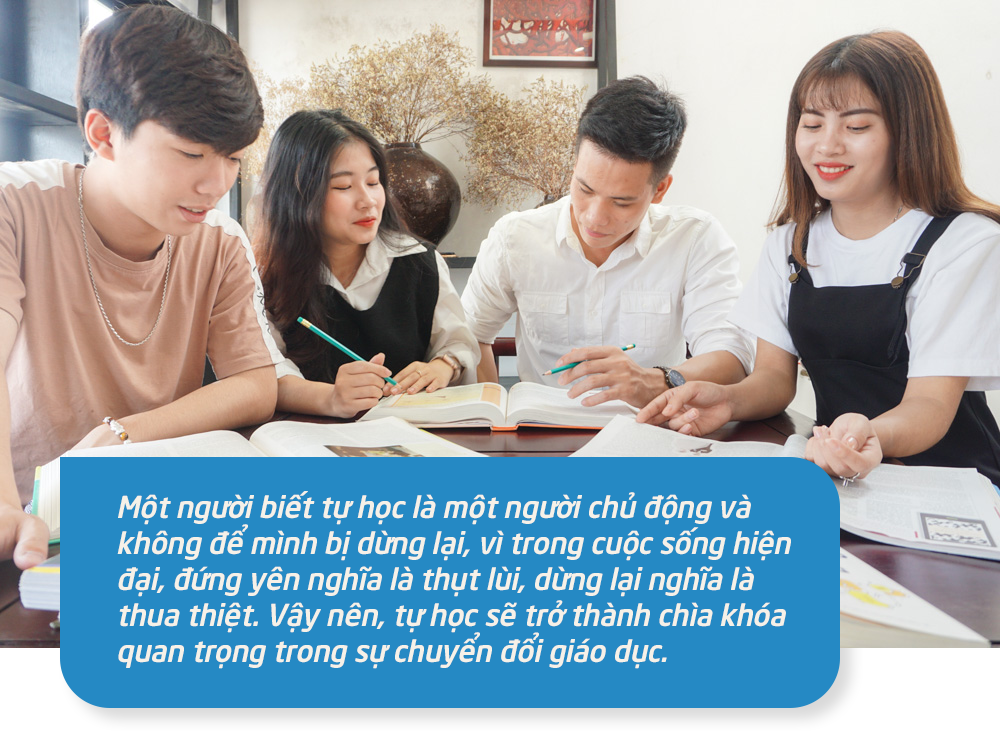
In short, the transformation of education towards digital, modernization and globalization is a trend that many educational systems are pursuing. And under the impact of the Covid-19 pandemic, this trend has taken a big step forward, creating a major turning point in education: shifting from direct education to online education. Although it is a temporary measure, it is also an opportunity and a challenge for Vietnamese education. Perhaps the situation is the driving force for us to integrate into international education. Everything is just beginning, but first of all, we need to be equipped with basic knowledge as a foundation for sustainable development.
Article: Thien Trang
Illustration: Document


